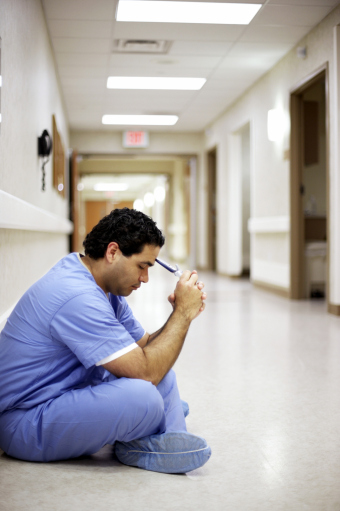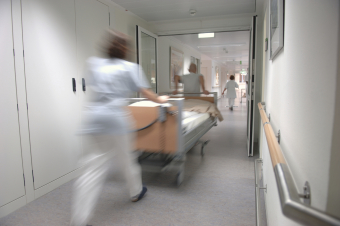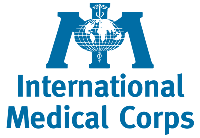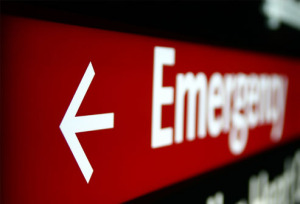 By Tamara Moores, a fourth year medical student at Loma Linda University specializing in Emergency Medicine.
By Tamara Moores, a fourth year medical student at Loma Linda University specializing in Emergency Medicine.
They tell me that I’ll change.
They always do.
In our first two weeks of medical school, freshmen students are assigned to shadow senior students working in the hospital. When I was a freshman, my senior student’s final comment to me was “Wow. You’re really enthusiastic… That will change.”
Now as a fourth year medical student, today’s version of the story was – “intern year will change you. You may look the same on the outside, you may portray that same bubbly, sunshine personality, but inside you’ll be different – harder, less tolerant, mean.”
They say it with confidence, they say it with authority, brooking no disagreement, allowing no doubt. Attendings, residents, nurses – they all deign to tell me my future – “there’s no way you can stay that energetic, it’s incompatible with a medical career.” Over and over I have heard this. As a medical student, I am supposed to listen and learn - to be guided by these wise elders. This morning when I heard the prediction for the 100th time, like always I politely listened with a half-smile. Yet silently my spirit roared “How DARE you smugly tell me the fate of my soul?! How DARE you justify your own insecurities about your passionless heart by attempting to degrade mine?”
Medicine is a unique environment. In my short foray into this time-honored, traditioned society, I have been buffered and shocked by the rampant negativity that oozes through the hospital walls. People seem to even take pride in their ability to bemoan their situation.
“Oh God, another consult from the ED, think they managed to even do a physical exam before calling?”
“That professor has no idea what’s on boards.”
“I can’t believe we have to be here.”
“This computer system is a joke.”
By far the most common conversation in a hospital is complaining. Tomorrow, try something different - stop and listen to the myriad people talking at work. The ratio of negative to positive conversations will overwhelm you.
Why is hospital culture like this? Shouldn’t a place of healing be full of warm emotions, positive thoughts, and uplifted people? Why is a ‘negative nancy’ the most common type of medical professional we meet? What are we doing wrong? These questions often come to mind during my workday. There is no easy answer. At the very least I know my top goal is to NEVER become that stereotypical cynical physician, and instead be the uncommon doctor with true passion for medicine.
So how do I accomplish this in such a caustic environment? Have no doubt, even at my current bubbly baseline, it is a daily war to maintain my heart for this career. So many physicians before me have fought this battle and lost. How can I succeed where they have failed?
A resident who I highly respect recently told me ‘be careful what you say, because talk patterns become thought patterns.’ This, more than anything, is my first defense against cynicism. It is SO easy to fall into conversation filled with complaints. These tiny conversations seem harmless, but over the course of a lifetime they shape your soul. Now at the end of my medical schooling, and at the cusp of residency, I am awed by the power of the spoken word. It’s undeniable - what we say both molds and reflects what we think.
Overall I believe the best weapon against developing permanent pessimism is to be deliberate in how we react to daily adversity. How do we respond to a floridly difficult, unpleasant patient? Do we moan about how annoying they are? Do we ruminate about how unfairly they treated us? Permit me to suggest a different response. Instead of focusing on how unjustly that patient has treated me, I instead try to feel gratitude. Whether or not it’s right, these difficult patients make me grateful that my life has not put me in their position. They must be really unhappy inside, to so poorly treat the people who are trying to care for them. When I am mistreated by an attending, I remind myself that they are but a momentary discomfort, and soon will be gone from my life. Over and over I find myself fighting to see the positives in my life. It is a deliberate, intentional strategy, which allows me to shine out with joy even in the little moments of the day.
I firmly believe that working as a medical professional can be a path to a life filled with meaning and passion….if we let it. Not all days are perfect, but most days I feel like I’m the luckiest girl in the world to be in my chosen career. The patients are interesting, my skills are stretched, and I feel fulfilled. Beyond these personal reasons, more than any other career, medicine reminds us how short and precious life is. We deal in broken bodies, lives cut short by car collisions, by strokes, by chronic disease. How lucky we are to be able to move our bodies without wheelchairs, to be relatively self-sufficient. Working in the medical field reminds me daily that everything can change in a moment. It is this acute awareness of the frailty of life, which makes me embrace life with so much abandon. It is this knowledge that gives me joy in the workplace, even during the rough days. To put it bluntly, life is too darn short to be grumpy.
So why am I reflecting via this forum? Perhaps because I hope that I am not alone in this fight. Perhaps I hope that by starting a discussion, we might nudge forth a change in the standard hospital culture. Maybe with forums like this, we can shift the caustic paradigm. Here’s to hope.
About:: Tamara Moores is a fourth year medical student at Loma Linda University. She is specializing in Emergency Medicine. https://www.facebook.com/reflectingthelights
Read the original post on Uncommon Student MD
 Guest post by John Di Saia, MD
Guest post by John Di Saia, MD




 3 Comments
3 Comments



